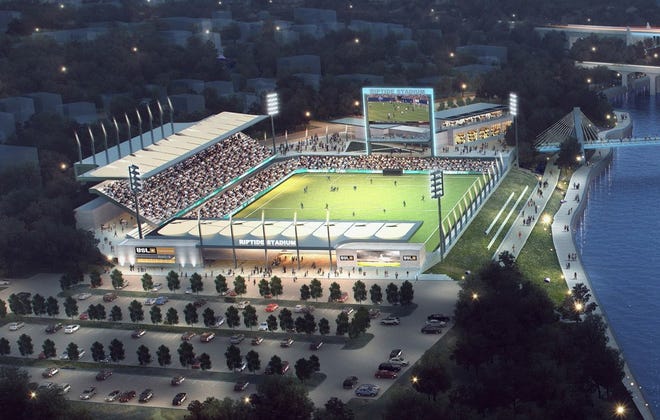PROVIDENCE – Rhode Island voters are not particularly keen on the proposed $60 million in public financing for the planned soccer stadium in Pawtucket according to a new poll for WPRI and Roger Williams University.
When asked even more broadly whether they supported “public funding for the soccer stadium,” 44% of voters said no, 35% said yes and 19% said they weren’t sure.

What do Rhode Island voters think of the Tidewater Landing deal?
The poll showed a stark gender divide.
Male voters are evenly split, with 41% in favor and 41% against public financing of the stadium. Only 30% of female voters favor the idea, and 46% are against.
Democrats lean 42%-to-39% against public financing for the stadium, and independents – who can vote in either primary – are 48% to 25% against.
More news:Poll shows McKee, Gorbea in ‘statistical dead heat,’ ahead of Democratic primary for governor
The poll of this one question – and the standings of the Democratic candidates for governor, lieutenant governor and Rhode Island’s 2nd Congressional District seat ahead of the primary – was conducted between Aug. 7-10 by Fleming & Associates.
The stadium question stemmed from the highly controversial vote last month by the Rhode Island Commerce Corporation board chaired by Gov. Dan McKee, who cast the deciding vote.
The board – which acts as Rhode Island’s economic development agency – approved a reworked public financing plan for a $124-million professional soccer stadium on the Seekonk River as part of a proposed development known as Tidewater Landing.
The 6-to-5 board vote allows the state to dedicate the proceeds of a $36-million bond – most of which was previously earmarked for adjacent housing and commercial development – to the stadium alone. Total public commitments to the stadium, including tax credits, state and city funding, is estimated at around $60 million.
McKee’s Democratic challengers in the race for governor attacked the public financing plan during a debate on WPRO radio earlier this week.
McKee, in response, accused them of turning their backs on Pawtucket and ignoring the jobs – and the spark to further development – that advocates anticipate the stadium will create.